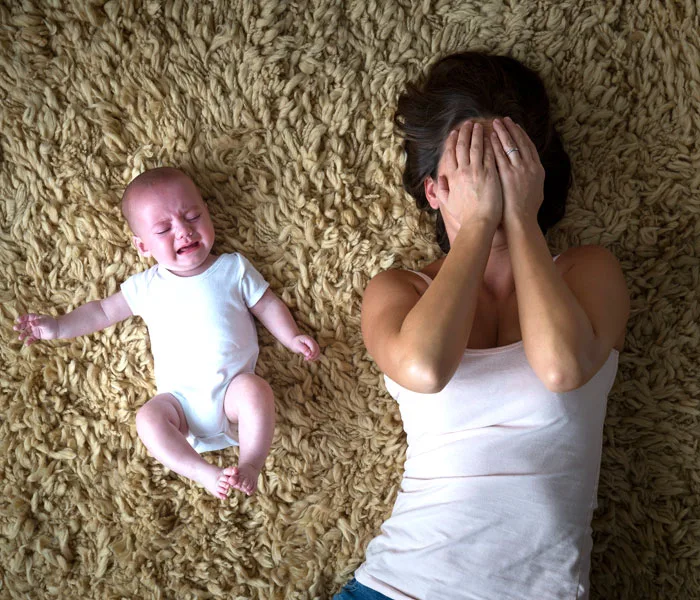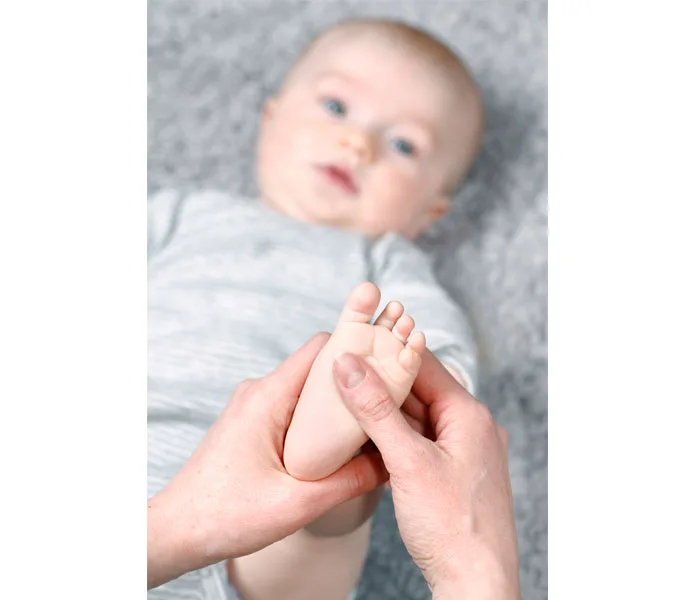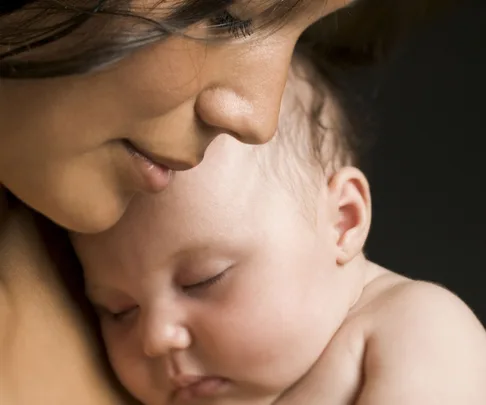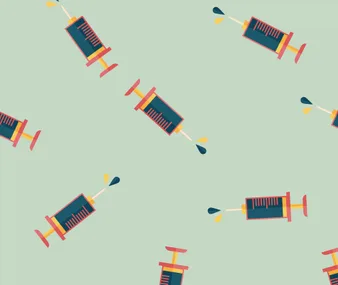The atmosphere in the operating room at Wellington Hospital was frantic. Thoughts pinged around Lisa’s* head like balls in the Lotto machine. As she steeled herself for a Caesarean section, the already clinical room began to feel even colder. Instead of wondering which parent their child would look like, Lisa and her partner were terrified – they’d been told the baby could be stillborn.
When Lisa first held her daughter, she was relieved the baby was alive but it wasn’t the euphoric rush she had been expecting. It certainly wasn’t like a scene from British reality programme One Born Every Minute, with soft music accompanying the new mother’s tears of joy. In fact, there were no tears and Lisa found herself wondering if she’d ever cry.
Looking down at her daughter’s strange, scrunched-up face, Lisa remembers feeling “shit scared”, like she was holding a friend’s baby. “I was thinking, ‘What’s wrong with me? Why am I not crying? Why am I not overjoyed?’”
Lisa isn’t alone. Although there are no New Zealand statistics, as many as one-third of new mothers in Britain struggle to bond with their newborn, according to the UK-based National Childbirth Trust (NCT) survey.
Bonding is forming an attachment to your baby and is characterised by feelings of trust and affection, which may or may not happen at birth. While it’s common not to experience an immediate bond, most mothers remain silent and can suffer devastating guilt. The NCT survey of 1515 new mothers found that, alarmingly, more than one in 10 were embarrassed to speak to health professionals about their lack of bonding – and experts say the rates are similar here.
Lisa, like many new mothers, had spent the weeks before the birth in a state of excited anticipation. Television programmes, antenatal groups and friends were all brimming with the ‘love-at-first-sight’ message. There was no mention of anything else. “You’ll look down at your baby and it will be instant love,” said one friend. “It’s magical, a moment you’ll never forget,” said another. Remembering all this, Lisa instead felt crippled with shame.
When her husband was about to go home to sleep, she asked him what he wanted her to do with “it” – meaning the baby. Both were at a loss as to what to do next.
Lisa’s antenatal classes hadn’t touched on the emotional or mental state of the mother; nothing hinted at how overwhelmed and detached she might feel. Confronted with these feelings, she felt scared and alone, and “like a failure”. She recalls feeling desperate for someone to tell herthat what she was experiencing was normal.
When her baby was two days old, Lisa’s midwife asked what was going on. “I feel like a bit of a fake,” she replied. The midwife dug a bit deeper with questions about skin-to-skin contact and cuddling. After spending most of the day holding her baby against her bare skin, Lisa felt something click. The baby in her arms felt like hers at last. “It was such a relief.” The tears came. Relieved to be feeling something, she let them flow freely.

Many new mother’s struggle with bonding intially
Lisa, now 33 and expecting her second child, is a staunch believer in attachment theory, which centres on the emotional bonds between babies and their primary caregivers. There’s a lot of evidence that touching and talking to babies is very helpful in the bonding process, and Lisa practised kangaroo parenting: skin-to-skin contact between caregiver and baby. Often used with pre-term babies, it promotes bonding and has been known to have a larger impact on the likelihood of an at-risk baby surviving than an incubator.
Kate Dent Rennie, co-director of the Wellington-based Centre for Attachment, tells NEXT that it’s impossible to downplay the importance of attachment. “Babies come into the world hardwired to seek out an attachment figure. They bring with them behaviours such as cooing, smiling and crying to hook in to this figure. It’s a fundamental human survival system.”
However, a multitude of factors can interfere with the bonding process, including depression, an upsurge in anxiety, or experiencing and recovering from a traumatic birth.
Tauranga mother Karen*, 42, can relate. After passing the due date, her baby was induced and became distressed. Karen was rushed off to have an emergency C-section.
“I felt quite detached and calm,” she says. “I didn’t experience any great rush of love that you hear other mums talk about. He struggled to latch on – and it all went downhill from there.” Karen remembers feeling out of control and alone. “Nobody, not even my mother or husband, had a grip on how I was feeling.”
On her own, Karen wrestled with some extremely dark thoughts: “I remember wanting him dead.” Although she didn’t actually want to physically harm her baby, Karen says she wasn’t remotely interested in him, even though it was a planned pregnancy and he was a longed-for baby. It went much deeper than simply not feeling enjoyment. Karen was imprisoned by intense feelings of guilt and isolation.
Not meeting her expectation of immediate maternal love, an offhand comment made by a midwife in Karen’s Plunket book made her feel like a failure. “It said that Baby was giving Mummy a hard time and she needed to get him into a routine.” For Karen, the comment was devastating. Although she realises she was sensitive at the time, she says that “back then I had no coping strategies to do what the midwife had suggested”. So she kept her feelings under wraps. “I was pleased I managed to fool everyone.”

On the other hand, Wellington writer Sarah Lang knew that not bonding instantly was commonplace. Rather than being frightening, it was something she half expected, given she had suffered from extreme insomnia and anxiety during her pregnancy. Confident in this knowledge, Lang, now 36, let the process take its course.
“The baby is a stranger – one you need to get to know and build a relationship with,” she says. “Don’t put pressure on yourself. Not bonding straight away is a natural reaction. Just trust it will happen eventually.”
These words are echoed by many experts, including Antoinette Ben, executive director at Post and Antenatal Distress Support Group Wellington. Ben, 41 and a mum-of-five, believes we don’t give the experience of new motherhood the acknowledge-ment it deserves. “It’s huge. No one talks about the fact that when you become a parent it will have more of an impact on you than anything else. And that impact isn’t always positive.”
Part of the problem is that mothers have nine months to dream about it, buying baby gadgets and imagining the kind of parent they will be. However, the gap between expectation and experience can be immense, says Ben. If things don’t go to plan with the birth or in the early weeks, many mothers can feel grief, loss and disappointment. “And it’s okay to give yourself permission to feel it.”
Ben hopes if the lack of instant bonding is brought more into the open, new mums will know it can be a normal response, and feel more confident about accessing support. Her organisation provides it at many levels. There’s a Facebook group for linking up with other mums, and mothers can see a counsellor within three days of reaching out for help through a GP or midwife, or with a Plunket or self-referral. You don’t have to have clinically diagnosed postnatal depression to access this support, either.
Lower Hutt mother Kylie*, 42, had a traumatic vaginal birth. As the hours and then days went by, she had issue after issue. Breastfeeding was “hideous, toe-curling pain”, she says. When she was re-hospitalised three weeks after the birth with full-blown mastitis, the baby was taken to another ward.
Kylie was incredibly relieved to have some separation from her baby, but like many others, she’d never heard of anyone having this experience before. “There was no advice like, ‘If you’re having a shit time, here’s what you can do.’” And like those before her, she kept her feelings hidden. “You feel quite lonely with it and that you haven’t tried hard enough.”
Kylie now tells new mothers to act on their intuition. “Put your foot down and get support as soon as possible.”

It was Kylie’s GP who finally helped her, by giving her ‘permission’ to bottle feed after she’d tried unsuccessfully to breastfeed. Bottle feeding went swimmingly, though Kylie had to confront the stigma around it. But when the baby began thriving on formula and sleeping through the night, Kylie gained confidence.
“A happy mother means a happy baby,” she says. The midwives in the hospital and later Plunket were an “amazing support” for her once she started bottle feeding, as was talking to other mothers.
Down the track, things are different for these mums. Having been through this experience, Lisa isn’t afraid to ask her friends with new babies the difficult questions, and in doing so has discovered some were also suffering in silence. What would she say to a mother who’s struggling? “Don’t be hard on yourself. It’s normal.”
For Karen, assistance arrived when her baby was four months old, in the form of a midwife-turned-sleep-consultant. Karen felt she could be very open with this consultant about the concerns she was having over not bonding with her son. The fact that at this stage he was getting enough milk and began sleeping through the night helped. “He was a much happier baby and I started to enjoy him.”
- Names have been changed.
What mums can do: How to get support
– See your GP
– Join a coffee group
– Take a baby massage class or look into kangaroo care (skin-to-skin contact, cuddling)
– Access your local Plunket rooms
– Plunket Line: 0800 933 922 (24 hours, 7 days); email plunket@plunket.org.nz
– Mothers Network NZ: 027 533 1992; email mothersnetwork.wn@xtra.co.nz
– Anxiety helpline: 0800 269 4389 (24 hours)
– Post and Antenatal Distress Support Group: www.pnd.org.nz
– Maternal Mental Health: www.mothersmatter.co.nz
Words: Jeanna Thomson
For more from NEXT, follow us on Facebook and Instagram here.


